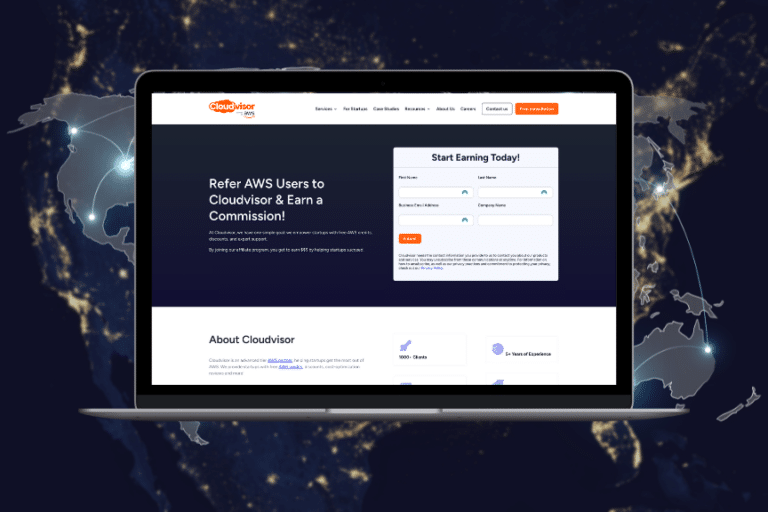The landscape of software development and infrastructure management has been revolutionized by the advent of DevOps, especially within the AWS Cloud environment. DevOps, a compound of development (Dev) and operations (Ops), represents a cultural shift, merging the traditionally siloed roles of software development and IT operations. In the AWS ecosystem, this convergence facilitates a more efficient, reliable, and faster way of delivering applications and services.
The Essence of AWS Cloud DevOps
AWS Cloud DevOps is more than just a set of practices; it’s a philosophy that integrates various aspects of software development and IT operations. This integration aims to shorten the systems development life cycle and provide continuous delivery with high software quality. Key practices in AWS Cloud DevOps include continuous integration (CI), continuous delivery (CD), microservices, infrastructure as code (IaC), and effective monitoring and logging.
Continuous Integration and Continuous Delivery
CI and CD are cornerstone practices in AWS Cloud DevOps. Continuous Integration refers to the process of automatically integrating code changes from multiple contributors into a single software project. It’s a critical DevOps practice as it enables early detection of conflicts and bugs. Continuous Delivery extends CI by ensuring that the software can be released to production at any time. These practices are supported by AWS tools and services, streamlining the deployment and update processes.
Microservices and AWS
The microservices architecture is another vital aspect of AWS Cloud DevOps. This approach involves breaking down applications into smaller, independent components, making them easier to manage and update. AWS provides various services that support microservices, allowing for more flexible and scalable application development.
Infrastructure as Code
Infrastructure as Code (IaC) is a practice where infrastructure is managed and provisioned through code instead of through manual processes. AWS supports IaC, enabling teams to automate the setup, scaling, and management of their infrastructure using code, which is more efficient and less error-prone than traditional methods.
Monitoring and Logging
Effective monitoring and logging are essential in AWS Cloud DevOps. These practices help teams track the performance of applications and infrastructure, allowing for quick responses to problems. AWS offers various tools for monitoring and logging, ensuring that teams can maintain high performance and reliability.
Benefits of AWS Cloud DevOps
Adopting AWS Cloud DevOps offers a multitude of advantages that can significantly transform how organizations approach software development and IT operations. These benefits not only contribute to a more efficient and agile workflow but also enhance the overall quality and reliability of services delivered to customers. Let’s delve deeper into these benefits:
Faster Innovation
One of the most significant advantages of AWS Cloud DevOps is the acceleration of innovation. By integrating development and operations, organizations can streamline their software delivery process. This integration allows for quicker feedback loops, faster iteration, and more rapid deployment of new features or updates. AWS tools like AWS CodePipeline and AWS CodeBuild facilitate continuous integration and continuous delivery, enabling teams to push innovations to the market at an unprecedented pace.
Enhanced Operational Efficiency
AWS Cloud DevOps optimizes operational processes, making them more efficient and less prone to errors. Automation is a key component here, as it reduces the need for manual intervention in tasks like deployment, testing, and infrastructure management. This automation, enabled by AWS services, minimizes human errors and frees up valuable resources, allowing teams to focus on more strategic tasks that add business value.
Improved Deployment Quality
Quality assurance is integral to AWS Cloud DevOps. The practices of continuous integration and continuous delivery ensure that code changes are automatically tested and validated, leading to higher-quality deployments. Tools like AWS CodeDeploy automate the deployment process, ensuring consistent and reliable application updates. This automated, systematic approach reduces the chances of deployment failures and enhances the overall stability of the production environment.
Better Resource Management
AWS Cloud DevOps provides a more efficient way to manage resources. With Infrastructure as Code (IaC), organizations can manage their infrastructure using code, which allows for more precise control and efficient utilization of resources. AWS CloudFormation, for instance, enables teams to model and provision AWS resources quickly and consistently. This approach not only saves time but also ensures that the infrastructure is aligned with compliance and governance requirements.
Scalability and Flexibility
AWS Cloud DevOps empowers organizations with scalability and flexibility. The cloud environment is inherently scalable, adjusting to varying workloads effortlessly. This scalability ensures that applications can handle increased traffic or computing demands without the need for extensive planning or resource allocation. Furthermore, the flexibility of AWS services means that organizations can choose the tools and services that best fit their specific needs, allowing for a tailored approach to DevOps.
Cost-Effectiveness
By optimizing resource utilization and automating various aspects of the development and operations processes, AWS Cloud DevOps can lead to significant cost savings. The pay-as-you-go pricing model of AWS services means that organizations only pay for the resources they use without the need for upfront investments in hardware or over-provisioning resources. This model, combined with the efficiency gains from DevOps practices, results in a more cost-effective approach to IT operations.
Enhanced Collaboration and Communication
AWS Cloud DevOps fosters a culture of collaboration and open communication between development and operations teams. This collaborative environment breaks down silos, encourages sharing of ideas, and leads to more innovative solutions. AWS tools facilitate this collaboration through shared repositories, automated workflows, and integrated communication channels, ensuring that all team members are aligned and working towards common goals.
Conclusion
AWS Cloud DevOps represents a transformative approach to software development and IT operations. By embracing this model, organizations can accelerate their innovation, improve efficiency, and enhance the reliability of their services. As an advanced-tier AWS partner, Cloudvisor has an expert DevOps team dedicated to helping companies with projects, ensuring they fully leverage the power of AWS.







